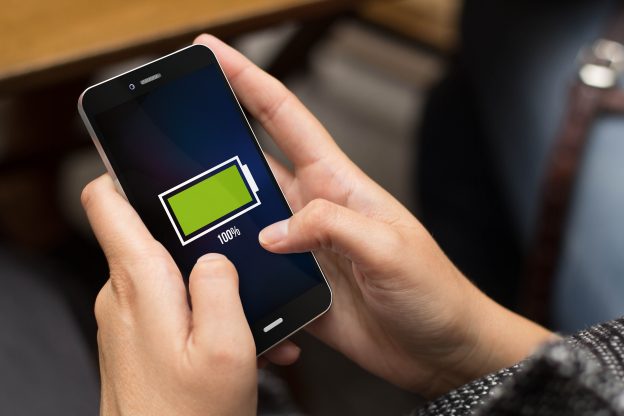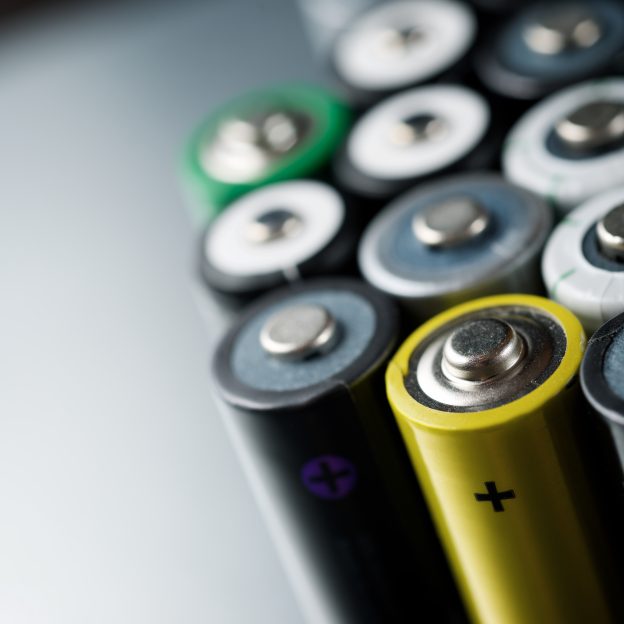
Scientists have been studying the idea of using the plentiful and salty seawater as an electrolyte for batteries since saline solution is an excellent conductor of electricity. Recently, a team of researchers working at the University of Central Florida (UCF) in the US has developed a new rechargeable zinc-ion battery that uses seawater as the electrolyte. Unlike the electrolytes in the mainstream rechargeable batteries, seawater has the advantage of being non-flammable and non-toxic.
Presently, the most popular type of rechargeable battery is lithium-ion battery. It has been responsible for the rapid technological advancements in consumer electronics, electric vehicles, and grid energy storage. Lithium-ion batteries meet the requirement of being compact in form factor and light in weight. In terms of performance, they have a high energy density, a short charging cycle, and a fast response time.
On the other hand, lithium-ion batteries have obvious drawbacks despite the convenience that they bring to people’s daily lives. Their component materials are metals that are very difficult to obtain. For instance, many lithium and cobalt mines have poor track records on labor rights and environmental protection. Lithium-ion batteries also have some inherent design flaws. Their electrolytes contain an organic solvent that is highly flammable. Moreover, their electrodes are susceptible to combustible reactions under specific conditions such as physical stress and high temperature. Reports of fires caused by malfunctioning or damaged batteries make lithium-ion batteries a potential safety hazard that is hard to ignore.
As mentioned above, the electrolyte of conventional rechargeable batteries include an organic solvent that is both highly toxic and highly reactive. Hence, used lithium-ion batteries that are carelessly discarded like common trash constitute a serious source of pollution. With the intention of providing a better alternative to the existing technologies for rechargeable batteries, the team at UCF proposes seawater as a safe and low-cost electrolyte.
A salt water battery is not a new and radical concept. In 2017, the Ulsan National Institute of Science and Technology in South Korea announced that it and local power company had developed a seawater battery. In 2019, IBM announced that it and Mercedes-Benz had jointly patented three special materials that can be used to make rechargeable batteries and are composed of minerals harvested from the ocean. At that time, IBM boasted that a battery that is composed of the special materials has a power density of more than 10,000 watts per liter and an energy density of 800 watt-hours per liter. It can also reach 80% charge within five minutes. The special materials do not contain the rare metals found in lithium-ion batteries.
The UCF team is working toward a similar goal. Instead of trying to improve lithium-ion batteries, the team investigates on the feasibility of a zinc-ion battery that uses salt water as the electrolyte. Zinc-ion batteries are among the several types of emerging battery technologies that have been gaining attention in the recent years. However, like lithium-ion batteries, zinc-ion batteries have the problem of dendrite growth. Dendrites are uneven crystalline deposits that are formed on the surface of the anode. These protrusions keep growing as the battery goes through more and more cycles of charging and discharging. Eventually, dendrites become large enough to pierce the separator and cause the battery to fail.
To address this problem, the UCF team first developed an anode that is coated with a “zinc-manganese nano-alloy”. This material can inhibit dendrite growth and is demonstrated to remain structurally stable after 1,000 hours of charging and discharging at a high current density of 80 millamperes per square centimeter. With this new anode, the team then assembled a zinc-ion battery with seawater as the electrolyte. The device is shown to be capable of powering a small fan. As an electrolyte, seawater can be easily recycled and will never catch fire.
Yang Yang, an assistant professor at the UCF NanoScience Technology Center, said that a structurally stable and durable 3D electrode has now become available for energy storage under harsh conditions. Yang is also one of the participants in the development of the seawater battery.
An innovative application that the team has proposed for its seawater battery is a power source for autonomous underwater vehicles. The team has also pointed out that the zinc-manganese nano-alloy can be used in batteries that do not use a water-based electrolyte. As with other newly developed technological solutions, the device born in the lab of UCF will require further study and improvements before it can enter commercialization.
(Image credit: Pixabay.)







